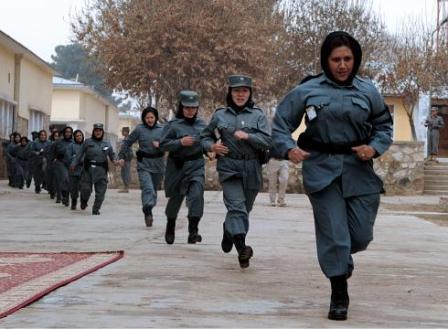Latest News
MoI Seeks to Rise Number of Afghan Policewomen


There is only one female police officer for every 10,000 women in Afghanistan.
The Ministry of Interior (MoI) says the presence of Afghan women in police ranks is an essential need.
A large number of unresolved crime cases of last year is making Afghanistan’s Ministry of Interior Affairs take measures to improve this statistic. One such measure is to increase the number of women in Afghanistan’s police ranks.
Interior minister declared that further efforts are made to create facilities for Afghan policewomen compared to the past.
“Presence of women in police ranks is an important need and it can reduce violence,” said Taj Muhammad Jahid, interior minister.
In the meantime, Afghanistan’s first lady called Afghan policewomen a key nut for implementation of the constitutions.
“The presence of women in police ranks has eased the implementation of law and Afghan women can clearly describe their problems; As representative of President, I fully support them,” said Rulla Ghani, Afghanistan first lady.
Today, peace in Afghanistan is protected by 2,875 female police officers who are involved in the fight against terrorism and drug trafficking. It is obvious that there is a need for more women in the Afghan police ranks. The challenge for the Ministry of Interior is to recruit 10,000 women by the end of March 2017.
It is definitely not an easy task for women in Afghanistan to serve as police officers. There are many taboos and at times they are stopped by their own family due to the high risk and dangerous nature of the job.
According to the official statistics, tens of thousands of women are currently studying and working in various fields across Afghanistan.
It is worth mentioning that not all of the provinces have a similar situation. The women usually get jobs that are situated in their home province as to not get separated from their families.
Although women in Afghanistan have become more empowered over the past 15 years and are now working as cabinet members, legislators, politicians, businesspeople, artists and singers, they continue to face discriminatory practices in patriarchal Afghanistan and in some areas they are not allowed to choose their life partner.
